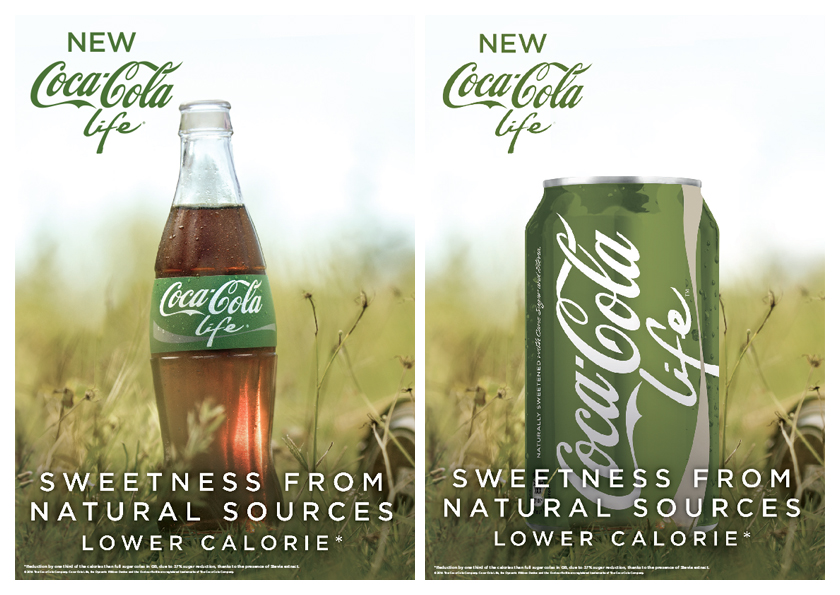The Coca-Cola company launched its new breakthrough late last year, Coca-Cola Life, a lower-calorie soda sweetened with cane sugar and stevia leaf extract. Coca-Cola Life is the result of the company’s initiative to promote health and address the global obesity epidemic. Does it actually do these things?
“Healthier” soft drinks are gaining popularity among consumers, based on Coca-Cola’s annual report in 2013. In response to consumer preferences, the new brand of Coke came to life. This drink has only 89 calories per can, but contains more than four tablespoons of table sugar.
While Coca-Cola Life is tasty and naturally sweetened, it doesn’t mean that this new drink is healthy. In fact, the current World Health Organization (WHO) recommendation limits sugar intake below 5% of the total energy per day or 25 g of sugar per day. The 250 mL can, which is the smallest size of Coca-Cola Life, has 17 g of sugar, which is nearly 70% of our recommended daily sugar intake. This drink also still contains coloring, caffeine, and phosphoric acid and does not contribute to a nutritious diet.
Advertisement displays for Coca Cola Life successfully lures one out of three Americans, according to USA Today. After purchasing and trying the drink, eight out of ten desire to buy it again.
Unlike previous Coke brands that do not suggest health or “all-natural,” the look of Coca-Cola Life is branded with an appealing, evocative green color. Studies have shown that the color green increases consumers’ perceived healthfulness of a product. Even the name, “Life,” ties the association of vitality and health to the drink. Coca-Cola has marketed this new brand of soda as healthy with reduced calories and “natural” sugar, and the public has generally accepted these claims uncritically.
While Coca-Cola Life avoids artificial sweeteners of Diet Coke and contains fewer calories, I hope to see industries respond to consumer demand for products that actually fit in a healthy diet. It does not appear that Coca-Cola Life meets this need, even if many consumers have been led to believe otherwise.

